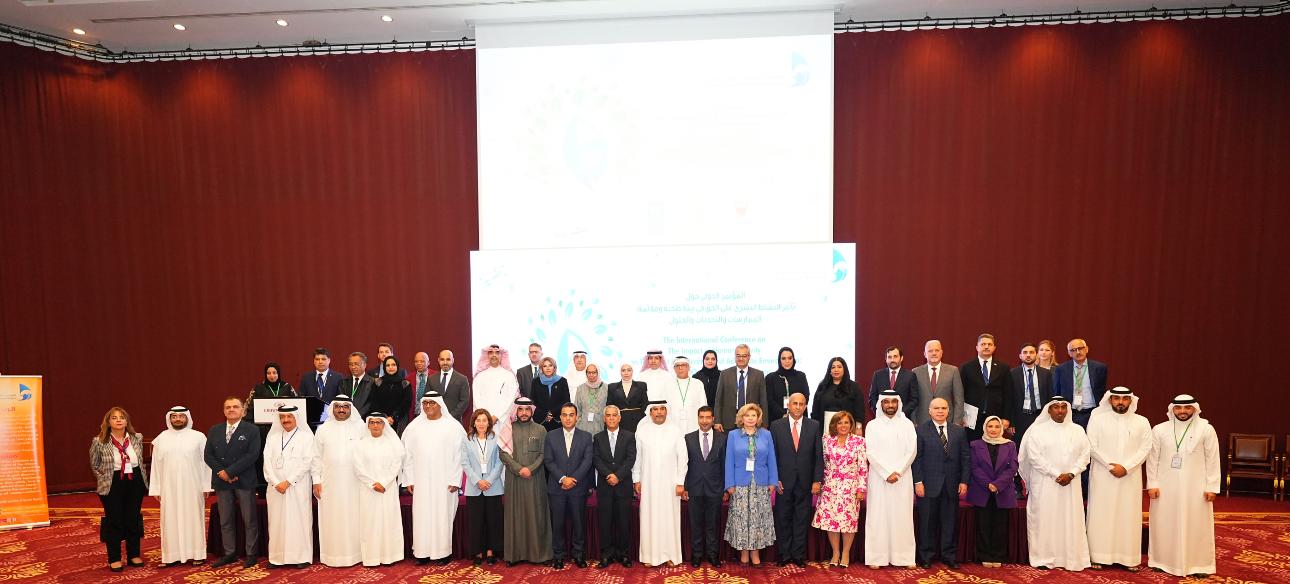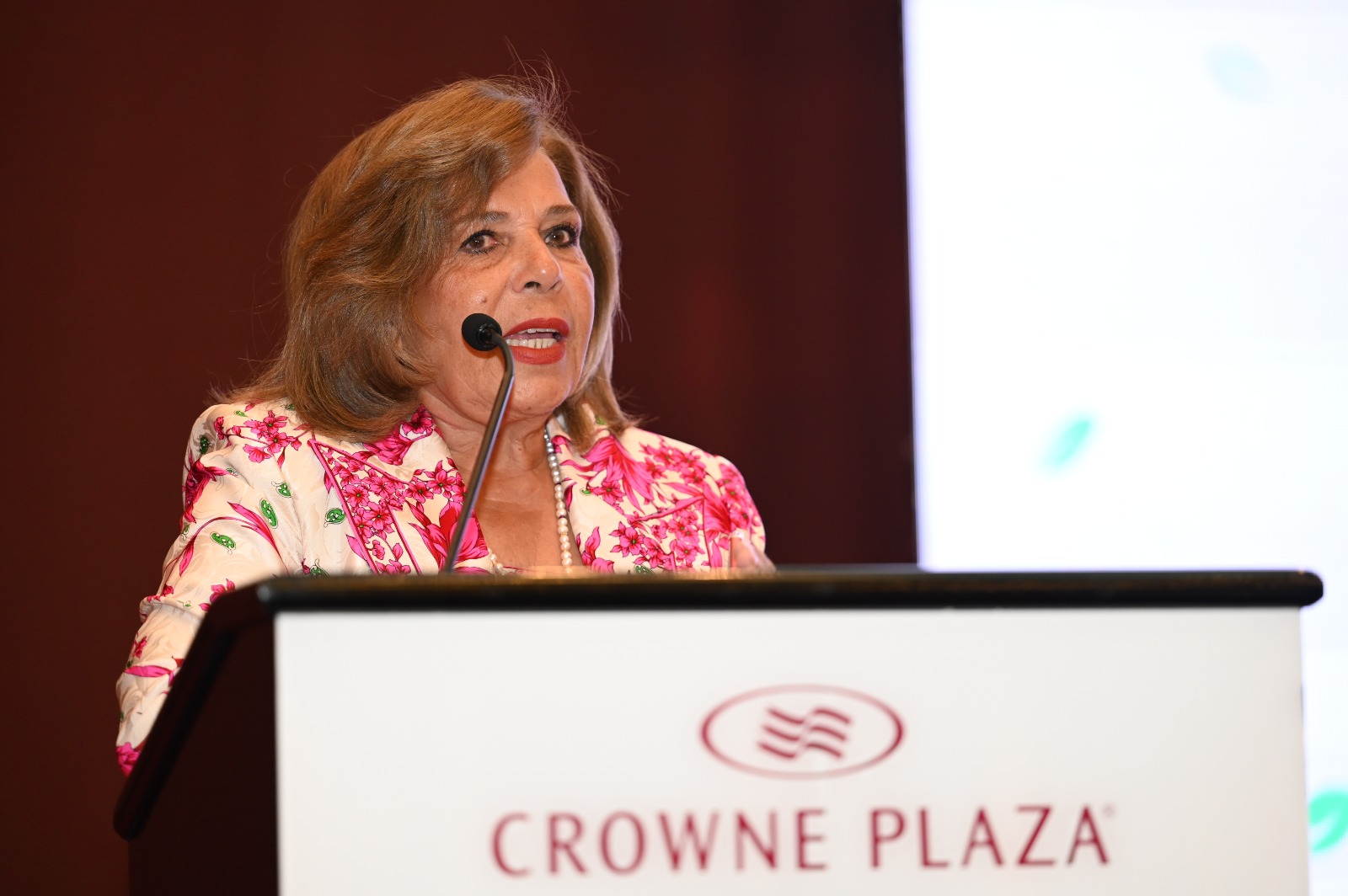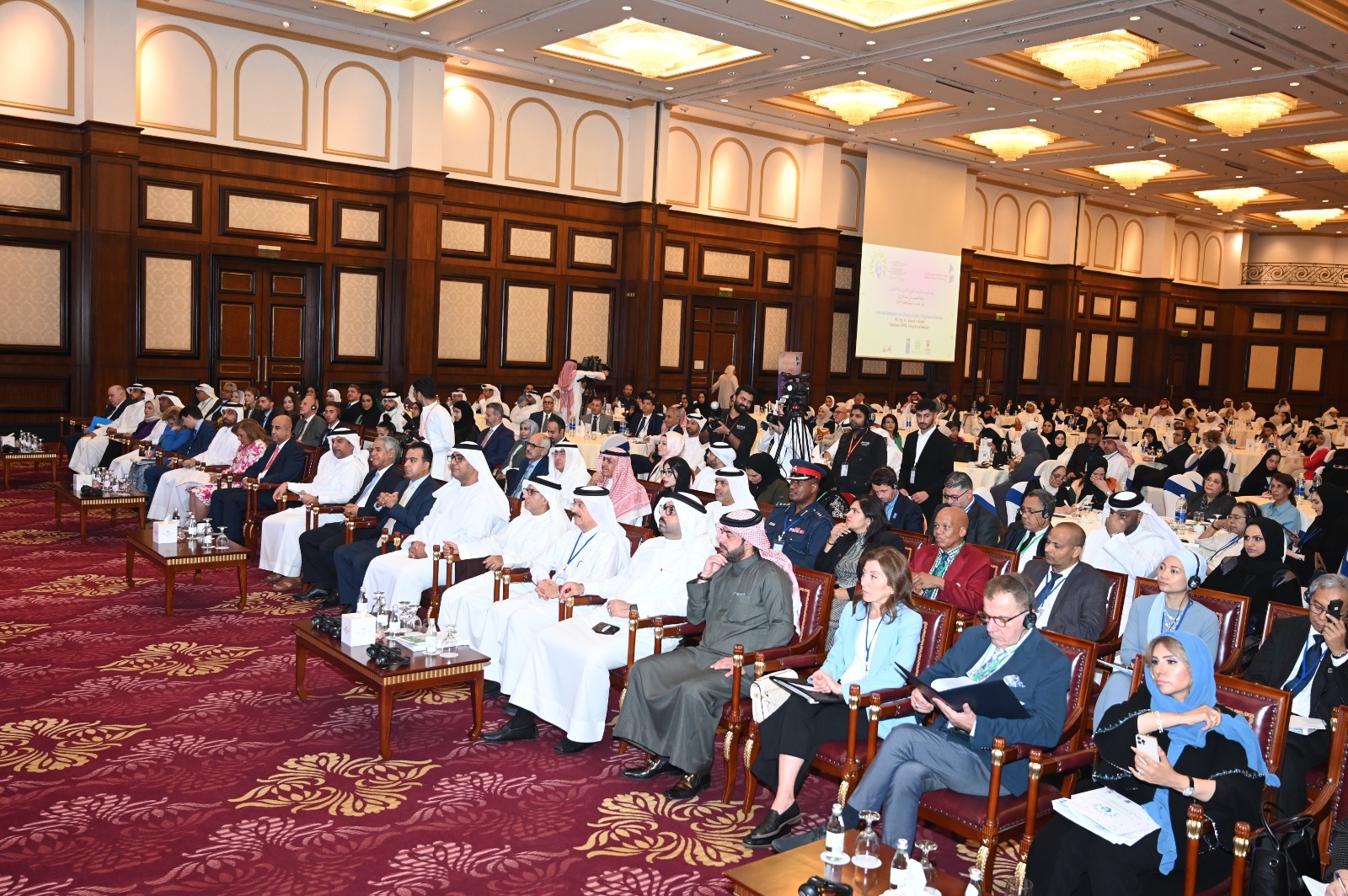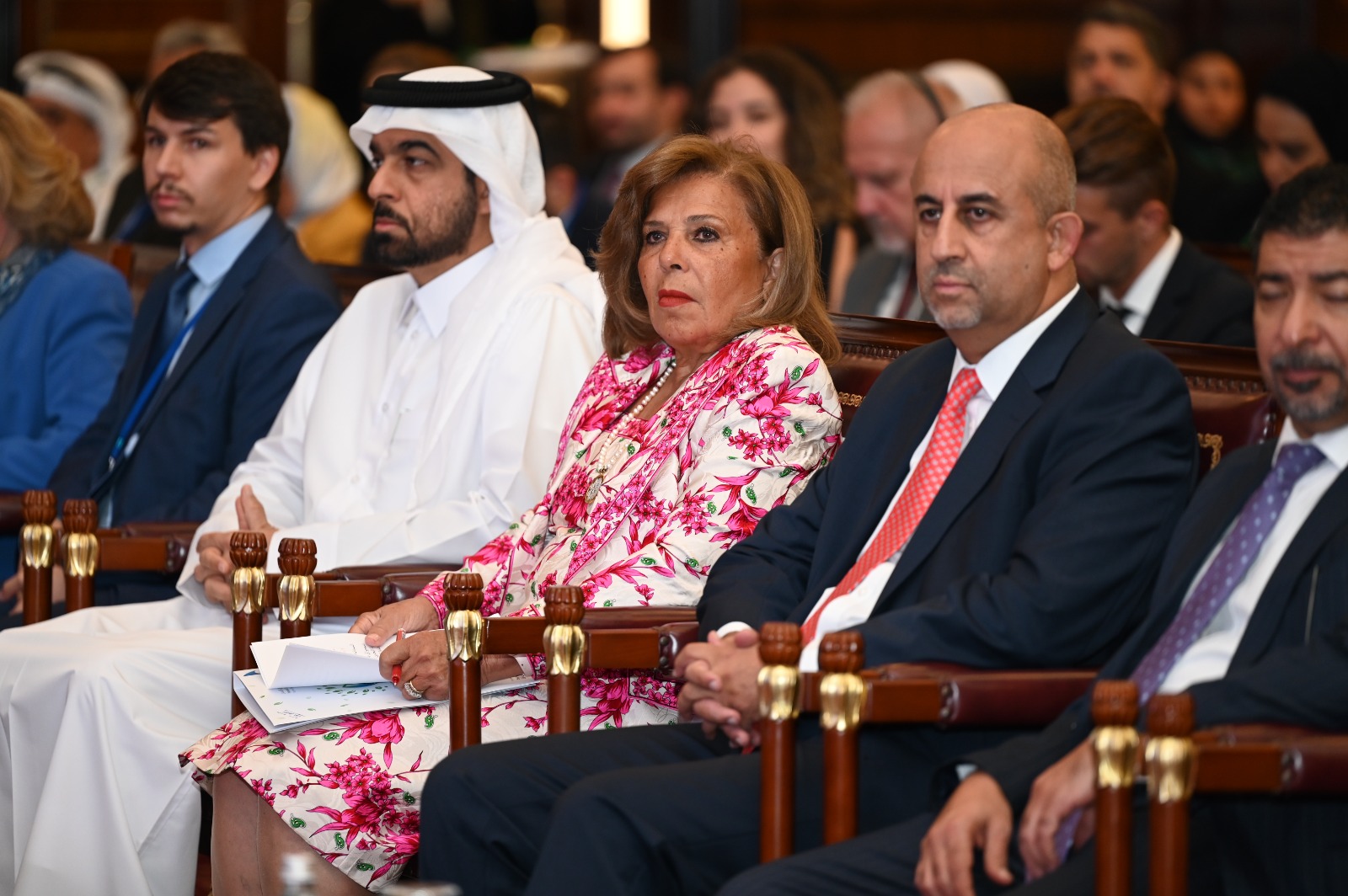Moushira Khattab at an international conference in Bahrain: Environmental threats are among the most serious challenges facing human rights
Ambassador Moushira Khattab, President of the National Council for Human Rights(NCHR) and President of the Arab Network for National Human Rights Institutions, participated in the opening of the international conference organized by the National Institution for Human Rights in the Kingdom of Bahrain under the slogan “The Impact of Human Activity on the Right to a Healthy and Suitable Environment: Practices, Challenges and Solutions,” in the presence of Dr. Mohammed bin Mubarak bin Daina, Minister of Oil and Environment, Special Envoy for Climate Affairs in Bahrain, and Engineer Ali Al-Darazi, President of the National Institution for Human Rights in Bahrain, with local participation from the Kingdom of Bahrain, and broad and active regional and international participation in the field of human rights.
In her speech, Khattab stressed that humans are completely dependent on the environment in which they live to enjoy all their rights. Whereas a safe, clean, healthy and sustainable environment is an integral part of the full enjoyment of a wide range of human rights, including the right to life, the right to enjoy good health, the right to food, the right to drink pure water and the right to sanitation, explaining that environmental threats It is considered one of the most serious challenges facing human rights, so the importance of reconsidering the approach to human rights and the environment must be emphasized, especially since the environment may include the planet, the climate, the family, and the work environment, pointing out that in light of human practices, I believe that we need to stop with regard to by designing on human rights methodology.
Ambassador Moushira Khattab mentioned the event organized by NCHR on the sidelines of the COP27 climate conference in Sharm El-Sheikh last year, which focused on human rights and climate challenges, noting that there are a number of experts who have reservations about the human rights approach in addressing the repercussions of climate change on the planet, the environment, because human rights are primarily concerned with entitlement, and that states alone have the responsibility to fulfill human rights.
For her part, Khattab stressed the need to consider the relationship between human practices and human rights, noting that human rights carry within them duties, as rights stop when the rights of others are violated. She pointed out that the Arab world suffers from a misunderstanding of the issue of human rights, as some see it as a call for rebellion and a threat to security and peace, and some see it as inconsistent with the fight against terrorism, pointing out that the definition of international security and peace in the past was limited to traditional wars, and this definition is no longer the current one because wars today have become wars of thought, electronic wars, and epidemic wars, and migration, displacement, and asylum have become threats to global stability.
She also stressed the need to point out that human rights are not absolute, and international human rights agreements confirm this, because every right has a control and not a restriction, and we must achieve that balance so that we can attract more supporters to the human rights file, because we need a human rights approach to achieve security and peace, and justice and stability, pointing out that Egyptian President Abdel Fattah El-Sisi indicated that sustainable stability stems from citizen satisfaction.
The speech of the participants in the conference also called for thinking about the relationship between the environment and human rights, because the environment affects all human rights, whether the right to food, the right to housing, the right to clean drinking water and other rights, including the right to protection from violence, as the African continent There are waves of displacement, conflicts and displacement of children due to the environmental repercussions.
It is worth mentioning that the conference witnessed four sessions that discussed legislation and general concepts of the right to the environment and human rights, and presented the experiences of national human rights institutions in promoting the right to the environment, and the role of official bodies in preserving this right, in addition to discussing human activity with solutions and recommendations to preserve it. on biodiversity and the promotion and promotion of environmental rights.





 English
English
 Arabic
Arabic
 French
French



